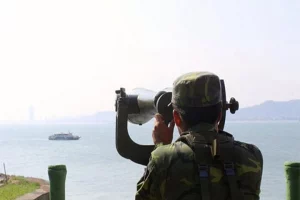The World Uyghur Congress, along with several other human rights organizations, expressed concerns on Thursday regarding the human rights situation in Xinjiang, China.
Human Rights Watch, Amnesty International, the International Service for Human Rights, and the World Uyghur Congress said that the United Nations High Commissioner for Human Rights, Volker Turk, should provide a public update of measures taken by the Chinese government and his office to address the human rights situation in Xinjiang.
The human rights organizations also released a series of translations of the report by his office on Xinjiang published in 2022.
It emphasised the United Nations High Commissioner for Human Rights’ role and responsibilities in addressing these issues, particularly following the release of a landmark report in August 2022. The report concluded that the actions of the Chinese government in Xinjiang may constitute crimes against humanity.
Despite international calls for action and ongoing advocacy efforts, including the publication of translations of the UN report into multiple languages to broaden awareness, there remains a critical lack of substantive follow-up and accountability from both the High Commissioner’s office and UN member states.
In the press release, the World Uyghur Congress has urged the UN High Commissioner to provide detailed updates on efforts to prevent atrocities and seek accountability, particularly as the second anniversary of the report approaches.
It also underscored the continued human rights abuses in Xinjiang, including arbitrary detention and suppression of Uyghur identity, despite international recommendations and calls for independent investigations. The organizations involved stressed the need for concrete action, including robust international scrutiny and accountability mechanisms, to address the ongoing crisis effectively.
Elaine Pearson, Asia director at Human Rights Watch said, “The publication of the UN human rights office’s report was a landmark moment for highlighting the gravity of human rights violations in Xinjiang.”
Pearson added, “Now it’s up to the UN high commissioner to make full use of that report to improve the situation for Uyghurs and other Turkic Muslims in Xinjiang.”
China’s actions in Xinjiang have sparked global condemnation for their treatment of Uyghur Muslims and other ethnic minorities. Organisations like Amnesty International, Human Rights Watch, and the United Nations Human Rights Council (UNHRC) have published extensive reports based on interviews with survivors, satellite imagery analysis, and other evidence documenting human rights abuses in Xinjiang.
Key accusations include the widespread arbitrary detention of over a million individuals in “re-education camps” without due process, described as part of a coercive effort for ideological control.
The reports of several organisations detail allegations of forced labour under exploitative conditions in industries such as cotton and textiles, drawing comparisons to historical forced labour practices and raising concerns about contemporary human rights abuses.
Chinese authorities have been accused of actively suppressing cultural and religious practices among Uyghurs and other minorities, including restrictions on religious activities, destruction and modifications of mosques and cultural sites, and efforts to enforce assimilation by promoting Mandarin Chinese over native languages.
Uyghurs and other minorities reportedly face significant obstacles to their freedom of movement, including arbitrary travel bans and strict residency controls, reinforcing an atmosphere of coercion aimed at maintaining political stability, according to Chinese authorities.




















